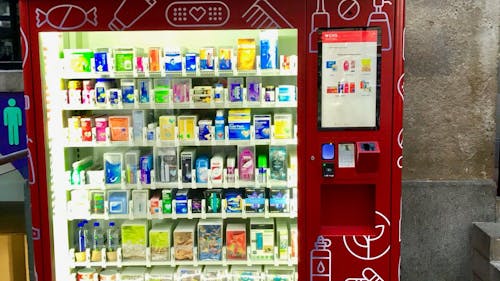U. organizations create petition to advocate for reproductive justice in Rutgers community

Various University organizations have created a petition advocating for reproductive justice within the Rutgers community, specifically in regard to implementing support for graduate and undergraduate students in their reproductive and child care needs.
The petition asked University President Jonathan Holloway and administration for increased staffing at student health centers, ultrasound equipment at student health centers, medical vending machines for Plan B and over-the-counter medications and on-campus medical abortion services or abortion pills, also known as Plan C pills.
In addition, the petition asked for gender-neutral restrooms in all campus buildings, child care benefits and funding to maintain free menstrual hygiene products.
Nusrath Yusuf is the vice president of the Rutgers Graduate Student Association (GSA), chair of the reproductive committee and graduate student studying neuroscience. Yusuf said the University’s silence regarding the overturning of Roe v. Wade was extremely obvious and disappointing.
"Rutgers prides itself on being an inclusive community. (The petition) is a very concrete step to continuing to be that inclusive community," Yusuf said. "The SCOTUS decision came up, there was nothing that came from the University in terms of a statement about this, about what the impact of such a decision is on Rutgers and its community."
Yusuf said that the initiation of the petition occurred when the GSA network, which is composed of 50 universities throughout the nation, was planning a Day of Action to create awareness for reproductive rights advocacy after the Supreme Court Dobbs v. Jackson decision to overturn Roe.
On October 6, GSA held a panel and set up tables on the College Avenue campus to collect signatures for the petition, fundraise for the National Abortion Network and provide resources for voter registration and domestic violence, Yusuf said.
"On the surface, the things that this petition is demanding might seem unrelated, but the petition is intended to be this way because it all comes down to bodily autonomy — that these are all various issues that are not related to one's gender, one’s sexual orientation or how one chooses to identify," Yusuf said. "It's all about having the right to choose to do what you need to to get the services that you need."
Lara Fougnies, vice president of the Rutgers University Student Assembly and a senior in the School of Arts and Sciences, said the Assembly is trying to emphasize the need for accessible and free menstrual hygiene products in University bathrooms, which would relieve some of the financial burdens from students attending the University.
The Assembly’s other goals include providing medical abortion services and Plan C pills as well as medical vending machines for Plan B or other over-the-counter medication, she said.
Medical vending machines specifically seek to mitigate the issue of sick students having to travel off-campus for medication like Plan B and Plan C pills, she said.
In order to work on these issues, the Assembly has been in contact with Francesca Maresca, the interim assistant vice chancellor for health and wellness, and Anne Newman, the associate vice chancellor of Student Affairs and the Dean of Students, Fougnies said.
"(The president of the Assembly) and I had the pleasure of having a meeting with Dr. Newman, where we are all together exploring the different avenues that we can take to try to start a pilot program for free menstrual hygiene products in the springtime," Fougnies said.
Currently, the Assembly is working on using Rutgers' funding for the project and continuously replenishing resources throughout the semester, Fougnies said.
Emily Hanselman, co-president of the Supporting Parents and Caregivers at Rutgers (SPCR) and a Ph.D. candidate in the Department of Nutritional Sciences, said SPCR focuses on students who have child care needs in conjunction with their educational responsibilities.
SPCR compared the child care subsidies available at nearby schools, like Columbia University and Princeton University, to precisely formulate caregiver needs and the amount of money that is sustainable for these parents and include this in the petition, Hanselman said.
She said that this included paid parental leave for the birthing and non-birthing parent, a graduate child assistance program and family housing on campus.
"The cost for graduate students to have one child in daycare is about $15,000 to $16,000 a year at Rutgers daycare, and this is 46 percent of the total stipend. So it's like half of our salary is going right to child care for just one child," Hanselman said. "Now if a graduate student, like me, has two children, then it amounts to $31,000, and that actually is 92 percent of my salary."
The petition asks for a more "reasonable rate of subsidy" for students to ensure that they would be able to sustain a safe child care situation, Hanselman said.
Graduate students who are single parents or low income struggle to survive, Hanselman said. Child care needs are time-consuming, and with less affordability for daycare and the time that must be devoted to graduate school, this means parents often take longer to get their degrees.
Hanselman said, especially for people who are trying to escape generational poverty, it is harder to pursue educational goals. The support from the University and the ability to provide for their children would be the greatest factor in promoting the economic welfare of these families.
"Since we are the stakeholders, making sure that we are having our voices heard and that our administration understands that reproductive health and reproductive rights are something that's very important to us," Fougnies said.



